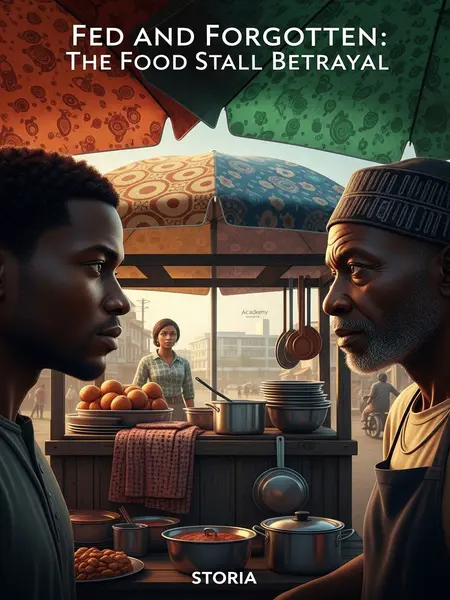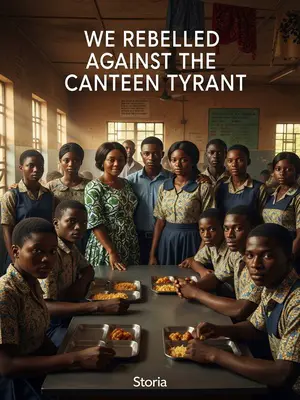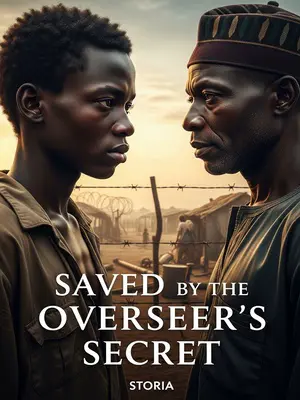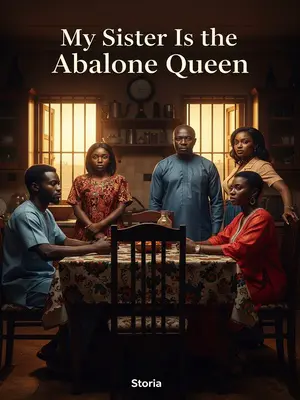Chapter 1: When Hunger Dey, Respect Dey Shake
The food stall opposite the construction site dey charge one thousand naira for one correct meal.
For Lagos, food no be just food—na survival, na respect, na wahala.
Every morning, as the sun begin warm the dusty road, aroma from that stall dey pull all of us—labourers, foremen, even market women wey dey hawk gala. Baba Musa sabi arrange the stainless trays: heap of white rice, red stew dey shine, sometimes you go see efo riro for side. The stall dey hum with generator noise, smell of fried plantain and red oil dey mix with dust. The way the place dey hustle, even pepper soup fly for breeze, na so e dey call your name.
Food no too sweet, but belle go full—na the main thing. At least you fit chop belleful and collect extra soup and rice for free.
Sometimes, the stew dey watery, meat no too tender, but as e dey fill person up, nobody dey complain too much. The site boys wey dey work under hot sun, na food wey go hold body we need. If you gree talk well, Baba Musa go just smile give you, pour better ogbono soup on your plate, or heap extra rice like say you be his own pikin. Na so e dey go, everybody dey manage.
I don dey chop here with the workers for three years now, but today I come see warning sign wey dem hang for the stall.
That sign just dey for the zinc wall, right where you dey queue. Sun don bleach am small, but today the words bold like police order. Everybody dey look am, dey whisper, dey wonder wetin dey happen.
E write: If you wan collect extra rice, you go pay, two hundred naira for each extra plate.
Na so wahala start, as if small breeze carry quarrel enter the air. People begin dey argue, dey calculate for head, dey check their pocket, dey shake head like old woman wey market no move.
I ask the oga, “Oga, this new rule na only for people wey come alone?”
I yarn am in low voice, make e be like say na secret, but na everybody dey listen. Even the small apprentice boys wey dey wash plates pause, dey wait Baba Musa reply.
He sigh, rub face, voice low at first: "Olumide, you know how things dey now..." then raise voice. The man look me one kain: “Which kind talk be that? Na una site people I even dey talk to. If I no do something, una go chop me finish. All this una site worker wahala fit run my business down.”
He talk am like person wey don tire, voice dey rise, eye dey red. You go know say Baba Musa no get joy that morning. E even use hand tap im chest, like say im dey swear.
As he talk finish, he look go the new dance academy wey dem just build across the road.
He spit for ground, adjust im cap. "You see that place? Na there better money dey now." The way e eye dey shine, you go think say na gold im dey look.
“Na the same one-thousand-naira food box—those students dey chop like bird, dem portion small like offering for church. As for una, I no even need una business.”
You fit hear some of the boys hiss under breath. Dem dey wonder if na joke or Baba Musa dey serious. People begin dey murmur, "Shey Baba Musa don forget say na we make am?"
I just stand there dey look am.
I fold my arm, just dey watch am with that Naija style—no vex, no smile, just dey calculate for mind. For this Lagos, person wey you help fit forget you sharp sharp. My boys dey look me, dey wait wetin I go talk.
He no even know say na my wife dey run that dance academy for the other side.
I just smile for inside, no talk. If to say I open mouth, na to disgrace am. Na so life be—sometimes the person wey dey talk for front, no know say you get stake for back.
I just dey watch Baba Musa, heart dey twist. E no know say na my wife dey feed am now—Lagos fit turn friend to stranger overnight.












